01 Sep 2016
The first conference on emerging topics in interactive systems was held at Xi’an Jiaotong-Liverpool University, with students and academics presenting their research on areas including human-computer interaction, information visualisation and the internet of things.
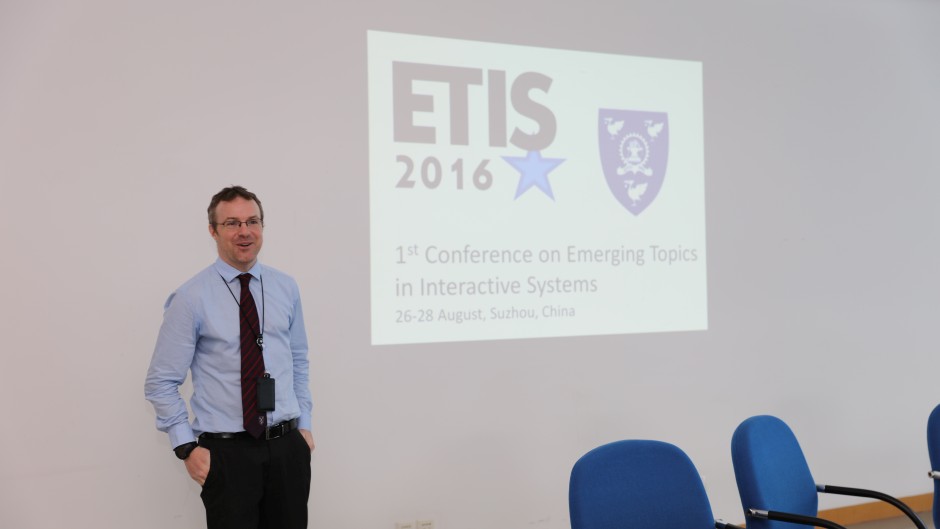
The two day conference was organised by Paul Craig (pictured above) and Xin Huang of the Department of Computer Science and Software Engineering. This was the first conference of its kind to take place at XJTLU.
“The idea behind this year’s conference was to keep the event fairly small scale,” said Paul. “We wanted to arrange the conference to encourage our own computer science and software engineering students, and it was largely a success. We received some very interesting papers and the overall standard of the work presented was very high.”
The first presentation (pictured below) was given by Summer Undergraduate Research Fellowship students Huayue Chen and Fidaly Houssen about their project, supervised by Paul, investigating ‘fisheye’ maps for mobile navigation. The maps enlarge the region around a user’s location, allowing the user to see local detail and the wider context without the need for zooming.
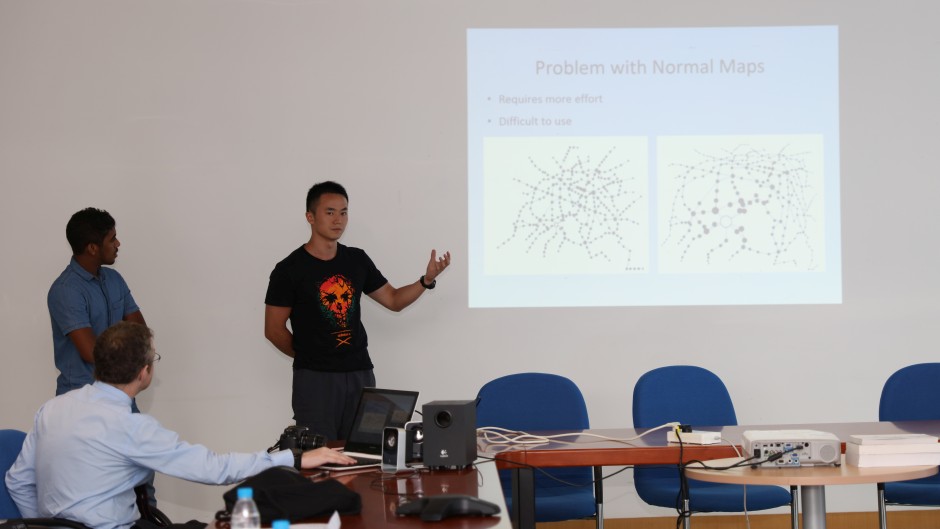
Skype presentations were also given from China, Ghana, Sweden and the United Kingdom. One of these (pictured below) was delivered by first year student Qingzhi Hu on her project, also supervised by Paul, investigating location based games to promote physical activity for Chinese university students. Qingzhi surveyed students about their responses to location based games such as Pokémon Go, compiling data that would be invaluable to future game designers.
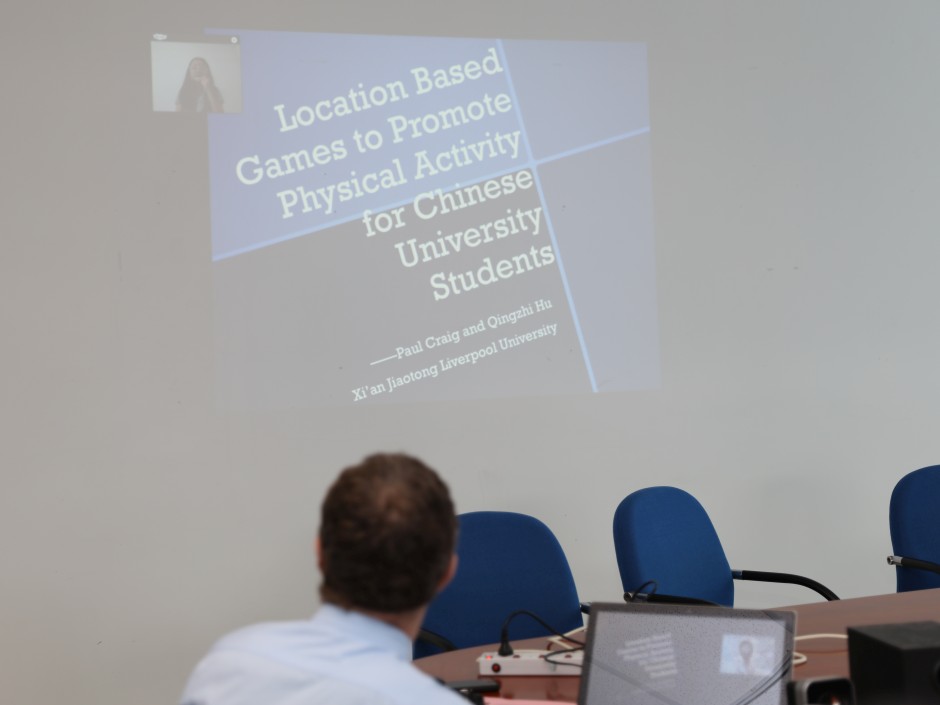
Other presentations focused on information visualization, given by MSc Applied Informatics student Melvin Metzger, virtual reality headsets, presented by Huiyu Wen, and payment systems for smart devices, delivered by Andi Xu. Other presentations looked at educational video-games, smart patrol robots, cyber security and electronic currency.
Setting up a new conference was a complicated process, and Paul explained some of the work involved: “You need to prepare the call for papers, set up the website, look after the paper review process, and make sure everything runs smoothly on the day. I was working for the conference in one way or another for most of the summer.”
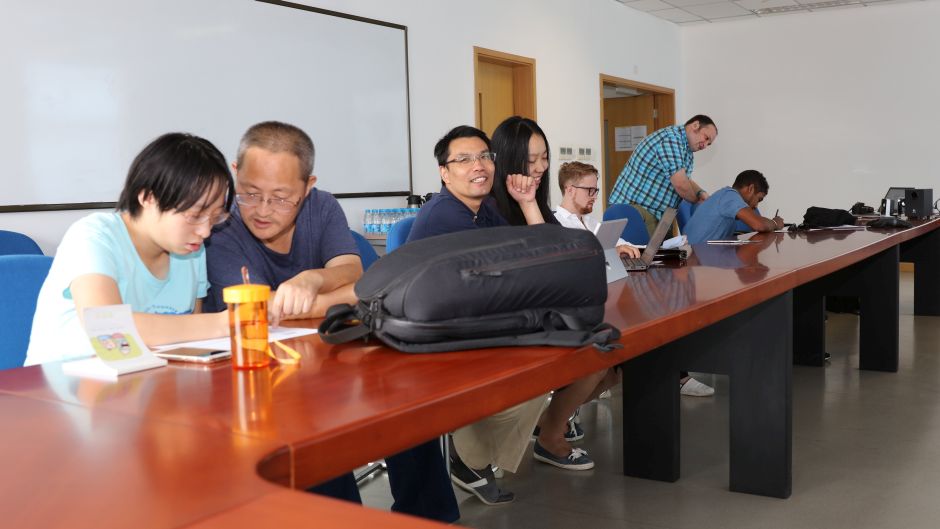
He spoke about plans for future conferences, stressing the need to encourage XJTLU students while maintaining the quality of papers and bringing the conference to a wider audience:
“For next year’s conference we plan to encourage more participation from external institutions and invite some keynote speakers to open the conference up to a wider audience. I think this year’s conference was a valuable experience for our students and we would like to continue this with future events,” he said.
01 Sep 2016
RELATED NEWS
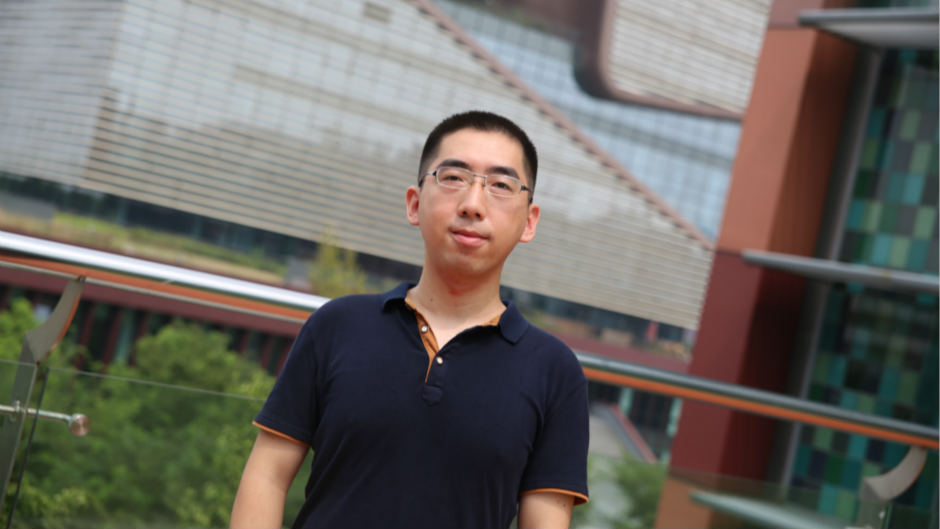
Computer science academic recognised for teaching on mobile app module
An academic from the Department of Computer Science and Software Engineering at Xi’an Jiaotong-Liverpool University has been recognised for his high-quality ...
Learn more
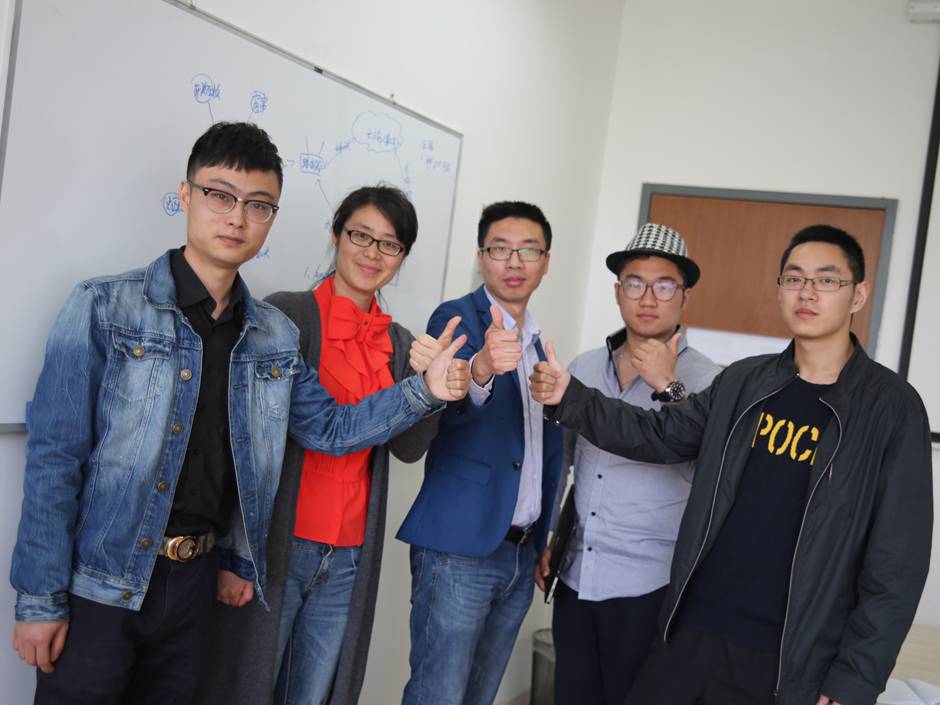
XJTLU student describes transformation into an entrepreneurial talent
Weihan Bo, a Year Four student in the Department of Computer Science and Software Engineering at Xi’an Jiaotong-Liverpool University, has described transform...
Learn more








